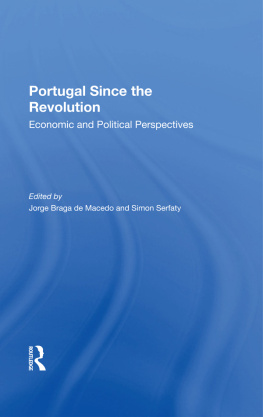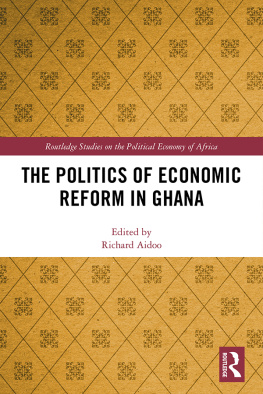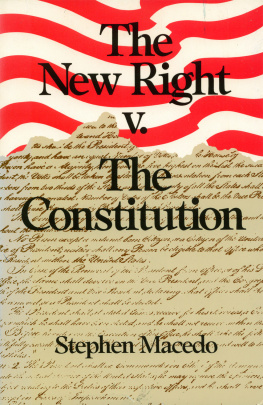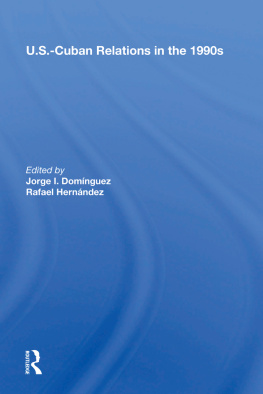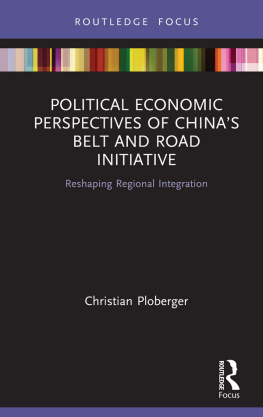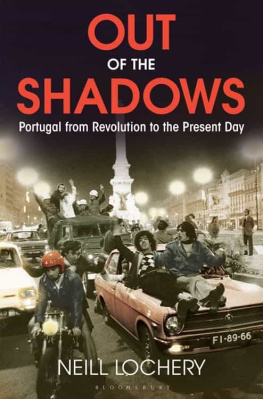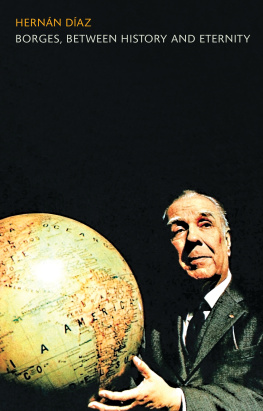Portugal Since the Revolution
Also of Interest
Change in the International System , edited by Ole R. Holsti, Randolph M. Siverson, and Alexander L. George
Worker Participation and the Crisis of Liberal Democracy , Sherri DeWitt
Communism and Political Systems in Western Europe , edited by David E. Albright
The Spanish Political System: Francos Legacy E. Ramon Arango
Marxism in the Contemporary West , edited by Carl A. Linden and Charles Elliott
Ideology and Politics: The Socialist Party of France , George A. Codding, Jr., and William Safran
NATO--The Next Thirty Years: The Changing Political, Economic, and Military Setting , edited by Kenneth A. Myers
The Foreign Policies of the French Left , edited by Simon Serfaty
Social Structure in Italy: Crisis of a System , Sabino Acquaviva and Mario Santuccio
The Impasse of European Communism , Carl Boggs
Foreign Policies of Northern Europe , edited by Bengt Sundelius
Available in hardcover and paperback.
Westview Special Studies in West European Politics and Society
Portugal Since the Revolution: Economic and Political Perspectives
edited by Jorge Braga de Macedo and Simon Serfaty
This volume examines the economic and political circumstances in Portugal since the 1974 revolution. A succinct analysis of the central themes of Portuguese politics (drawing on public opinion surveys conducted in Portugal) is followed by a framework for analyzing the economic consequences of the coup. The authors then assess the influence of the IMF in Portugal and the conflict between short-run stabilization and long-range growth objectives; discuss Portugals position within the European community with particular attention to the recent trends in labor migration, foreign investment, and trade; and point to the conflict between Portugals political willingness to join the EEC and its awareness of potential costs--both economic and in terms of the effects of European integration on Portuguese cultural identity.
Jorge Braga de Macedo is assistant professor of economics and international affairs at Princeton University. He has taught at the Lisbon Law School, the University of Angola, the Catholic University of Portugal, and Yale University and is co-editor of the journal Economia. Simon Serfaty is former director of the Washington Center of Foreign Policy Research, Johns Hopkins School of Advanced International Studies, where he is now a member of the faculty.
First published 1981 by Westview Press
Published 2019 by Routledge
52 Vanderbilt Avenue, New York, NY 10017
2 Park Square, Milton Park, Abingdon, Oxon OX14 4RN
Routledge is an imprint of the Taylor & Francis Group, an informa business
Copyright 1981 by Taylor & Francis
All rights reserved. No part of this book may be reprinted or reproduced or utilised in any form or by any electronic, mechanical, or other means, now known or hereafter invented, including photocopying and recording, or in any information storage or retrieval system, without permission in writing from the publishers.
Notice:
Product or corporate names may be trademarks or registered trademarks, and are used only for identification and explanation without intent to infringe.
Library of Congress Catalog Card Number: 80-26632
ISBN 13: 978-0-367-28394-0 (hbk)
The swift (less than seven hours) and bloodless (five deaths reported) collapse of the 46-year-old Salazar-Caetano regime in Portugal on April 25, 1974, had a substantial international impact--in Africa, in Europe, and on East-West relations. In Africa, it accelerated the demise of the last remaining European empire as independence was promptly granted by the new regime in Lisbon to Guinea-Bissau, Mozambique, and Angola. This in turn had two consequences. First, through the civil war that erupted in Angola, great power conflicts re-entered the arena of African politics in a manner that was to escalate further throughout the balance of the seventies and into the 1980s as well. To be sure, the Soviets--and even the Cubans--had been there before. Yet, the framework of their presence had been drastically different: the Cold War denied the permissibility of change anywhere, whether at the center (Europe) or at the periphery (Africa) of the international system. That change would take place nonetheless was usually the outcome of indigenous forces that were promptly embraced by the Soviet Union, whose power continued to be generally inadequate for overt and direct aid. Now, however, the Soviet Union came to understand dtente as the legitimation of change at the periphery of the system, even while the status quo was originally respected at the center. Endowed with military capabilities that had been sorely lacking in earlier years, Moscow could openly attempt to direct the winds of change. Thus, intervention in Angola was the first in a subsequent series of initiatives that reflected the full scope of the Soviet drive for global power.
In addition, the end of the Portuguese Empire made it possible for African states to focus specifically on the Southern African issues. In a sense, the wars in Mozambique and in Angola had diverted scarce African resources away from such issues. Now, with these wars ended, Southern Africa could become the center of African attention--Rhodesia/Zimbabwe first, then Namibia, and last, South Africa itself. The white regime in Pretoria understood this process all too well: following the failure of its military efforts in Angola, it embarked on a dtente policy of its own toward Zambia and Tanzania as it offered to help break the deadlock in Rhodesia, whose dependence on South Africa was all the more compelling as Salisbury had lost access to the Indian Ocean through Mozambique. As it is well known, this effort did not succeed. The United States too understood the new diplomatic map well as, during the latter years of the Nixon-Kissinger-Ford foreign-policy administration, it abandoned earlier speculations about the so-called Tar Baby option to work toward a settlement of these issues in such a way as to stall further Soviet (and Cuban) advances in the area. Pursued and increased by the Carter administration, such efforts set in motion a process that brought about, in early 1980, a settlement that owed a great deal to the persistence of Britains diplomacy and the good offices of Nigeria.
All of this, of course, the Portuguese Revolution did not cause single handedly. It did, however, act as a catalyst that brought together other variables that had otherwise been evolving over the years: the rise of Soviet power and global activism; the decline of U.S. power and the urge for withdrawal; the emergence of new regional powers; and the uncovering of the potential influence of the underdeveloped states of the South against the industrialized states of the North.
The consequences of the Portuguese coup were to be no less considerable in Europe. At first, it seemed to give a momentum to the emergence of a communist age in Southern Europe: the entry of the Communist Party (PCP) into the Portuguese government, it was feared, would be but the first step in a pattern that would see the Italian Communist Party (whose main adversary, the Christian Democratic Party, was about to be humiliated at the time of the referendum on divorce in June 1974), the French Communist Party (whose ally in the Union of the Left had nearly won the presidency against conservative candidate Valery Giscard dEstaing), and the Spanish Communist Party (whose resurgence following Francos impending death would show, it was widely feared, the same general characteristics as in Portugal). The darkest and gloomiest scenarios were advanced, as the new red tide was to engulf Yugoslavia and the North African states of Morocco and Tunisia as well where questions of political succession (an aging President Tito, a troubled King Hassan, and an ailing President Bourguiba) would be answered under the influence of powerful regional neighbors (Russia and Algeria).

